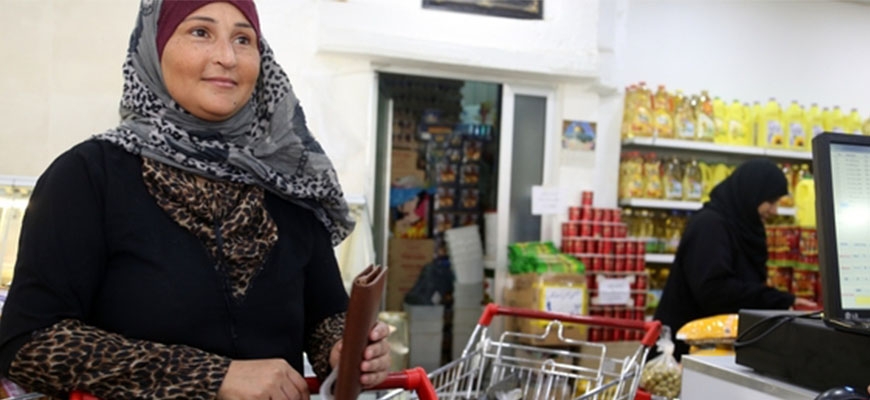
29 May 2015
With the ongoing civil war in Syria, vast number of Syrian had to flee Syria, escaping the war and trying to save their lives. Many families suddenly found themselves living in refugee camp tents, after they had flats, work and money in Syria.
The UN World Food Programme, the largest hunger relief organization, provides help for many Syrian war refugees in the form of a card that looks very much like the debit one you may have. It’s called an electronic card, or e-card.
WFP is providing e-cards to Syrian refugees in Jordan, Lebanon, Turkey, and Egypt. It’s an innovative way to deliver food aid to hungry war victims. In which, the e-cards allow families to go shopping at stores near the refugee camps or settlements. As WFP, with the help of its donors and partners, funds the e-cards with a monthly amount.
It’s a moment for them when things can get back to normal, at least for a bit. The refugees can choose the foods they want, whereas, in traditional food aid, set rations are given.
Muhannad Hadi, WFP’s emergency coordinator for the Syrian crisis, explains, “This is a real boon for Syrian refugees who have endured tremendous hardship over many months. The e-cards also bring business to local merchants, and they make WFP’s operations more time and cost effective. This is a win for all of us.”
The e-card program, as well as paper vouchers, have injected money into the economies of Jordan, Lebanon, Egypt, Turkey and Iraq. This is so important because these countries are under extreme strain from having to take in millions of refugees from Syria. This can lead to tensions between the refugees and the host communities.
Having an economic benefit for local stores helps reduce the chances of those tensions developing. The e-card program is very effective, and one that WFP wants to make available all around the globe. It can work in countries where markets are still functioning and provides a more efficient food aid alternative in those situations.
WFP relies on voluntary donations from governments and the public to provide food aid. The Syrian war relief mission is one of the largest in history. WFP is feeding over 4 million people inside Syria, and around 2 million in the aforementioned neighboring countries.
The monetary values of the e-cards has been scaled back because of low funding. This means Syrian refugees cannot purchase as much food every month as before.
Now governments and the public could step up the aid and get these programs restored at full value. Food for Peace is the largest donor to WFP but only makes up less than one tenth of 1 percent of the federal budget. There is room to improve these funding levels.
It’s critical the United States and other capable nations do so. The world has to support the Syrian people. It’s the only path to peace.
A vital part of the effort is this little blue card, very much like one you may own. It helps feed the hungry in a very efficient way. It prevents families from starving in the most difficult of circumstances and it brings them some precious hope. We should do all we can to see Syrians have this life-saving food.

 عربي
عربي